
The 1999 New Zealand general election was held on 27 November 1999 to determine the composition of the 46th New Zealand Parliament. The governing National Party, led by Prime Minister Jenny Shipley, was defeated, being replaced by a coalition of Helen Clark's Labour Party and the smaller Alliance. This marked an end to nine years of National Party government, and the beginning of the Fifth Labour Government of New Zealand which would govern for 9 years, until its loss to the National Party in the 2008 general election.
Kevin Thomas Campbell is a former New Zealand member of parliament for the Alliance, and the party's leader outside of Parliament at its deregistration in May 2015.
The Nga Iwi Morehu Movement was a New Zealand Māori political party. Its name literally translates as "the surviving people" or "the remnant people". It contested the 1996 election as an unregistered party, running a single candidate and gaining 194 votes. It ran two candidates in the 2002 election, winning 522 votes. In the 1999 election, members of Nga Iwi Morehu stood under the banner of the Freedom Movement.

The New Zealand electoral system has been mixed-member proportional (MMP) since 1996. MMP was introduced after a referendum in 1993. MMP replaced the first-past-the-post (FPP) system New Zealand had previously used for most of its history.

Clutha-Southland is a parliamentary constituency returning one member to the New Zealand House of Representatives. The current MP for Clutha Southland is Hamish Walker of the National Party. He has held the seat since the 2017 general election.

Auckland Central is a New Zealand electoral division returning one member to the New Zealand House of Representatives. Its current representative is Nikki Kaye, a member of the National Party; she has represented the seat since 2008.

Christchurch Central is a New Zealand parliamentary electorate in the South Island city of Christchurch. The electorate was established for the 1946 election and, until 2011 had always been won by the Labour Party. Since 2008, the incumbent was Brendon Burns but the election night results for the 2011 election resulted in a tie; the special vote results combined with a judicial recount revealed a 47-vote majority for Nicky Wagner, the National list MP based in the electorate. Wagner significantly increased her winning margin in the 2014 election after having declared the electorate "unwinnable" for National earlier in the year following a boundary review.
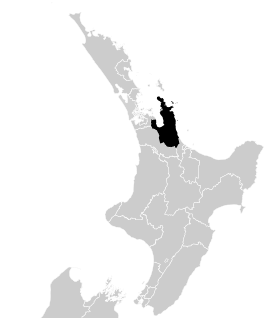
Coromandel is a New Zealand electoral division returning one member to the House of Representatives. It is currently represented by Scott Simpson, a member of the National Party.

Dunedin South is a New Zealand parliamentary electorate. It first existed from 1881 to 1890, then from 1905 to 1946 and was re-established for the introduction of MMP in 1996. A Labour Party stronghold, it has been represented by Clare Curran since the 2008 election.

Mana is a New Zealand parliamentary electorate north of Wellington. It is held by Kris Faafoi of the Labour Party since 2010.
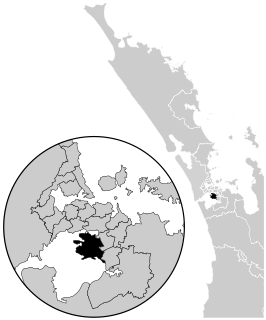
Māngere is a New Zealand parliamentary electorate, returning one member of parliament to the Representatives of New Zealand. The current MP for Māngere is William Sio, elected for the Labour Party. He has held this electorate since 2008.

Mount Albert is a parliamentary electorate in Auckland, New Zealand, returning one Member of Parliament (MP) to the New Zealand House of Representatives. It was represented by David Shearer from 13 June 2009 to 31 December 2016. It was represented by Helen Clark from the 1981 general election until her resignation from Parliament on 17 April 2009. It has elected only Labour Party MPs since it was first contested at the 1946 election. The current representative is the Prime Minister and Labour Party leader, Jacinda Ardern, who was elected in a 2017 by-election gaining 77 percent of votes cast in the preliminary results.

New Lynn is a New Zealand parliamentary electorate, returning one member to the New Zealand House of Representatives. Deborah Russell of the Labour Party has represented the electorate since the 2017 general election.

Rongotai is a New Zealand electorate, returning a single member to the New Zealand House of Representatives. The current MP for Rongotai is Paul Eagle of the Labour Party. He has held this position since the 2017 general election.
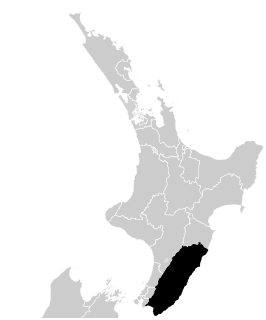
Wairarapa is a New Zealand parliamentary electorate. It was first created in 1858 and existed until 1881. It was recreated in 1887 and has since existed continuously. In the early years, the electorate was for a time represented by two members. Wairarapa has been held by Alastair Scott since the 2014 election.
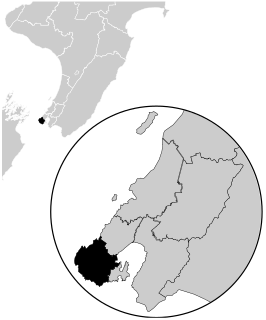
Wellington Central is an electorate, represented by a Member of Parliament in the New Zealand House of Representatives. Its MP since November 2008 has been Labour Party's Grant Robertson.
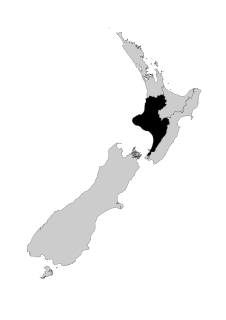
Te Tai Hauāuru is a New Zealand parliamentary Māori electorate, returning one Member of Parliament to the New Zealand House of Representatives, that was first formed for the 1996 election. The electorate was represented by Tariana Turia from 2002 to 2014, first for the Labour Party and then for the Māori Party. Turia retired and was succeeded in 2014 by Labour's Adrian Rurawhe who again retained the seat in 2017.
Titirangi is a former New Zealand parliamentary electorate. It existed from 1987 to 2002, with a break from 1996 to 1999. It was represented by four members of parliament, with three of them from Labour and one from National.
The Ban 1080 Party is an unregistered political party in New Zealand. The party was founded in 2014 by Bill Wallace. It opposes the use of 1080 poison, which is widely used in New Zealand for controlling mammalian pests such as possums and rats. The party's co-leaders are Bill Wallace and Mike Downard.

67 members of the New Zealand House of Representatives were to be elected in the general election on 27 November 1999. The tables below show the candidates for each electorate. Incumbent electorate MPs are highlighted in blue, and those candidates who were members of the previous parliament via their party list—regardless of which electorate they previously contested—are highlighted in red.















